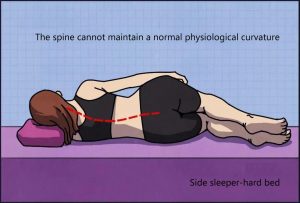
The strained waist is just like a knife that will hurt people.
In recent years, not only elderly people, but also the incidence rate of lumbar spondylosis among young people.
For people with poor waist, choosing the right mattress is actually very important. But many people have a deep attachment to the “hard bed”, especially our parents and elders.
They believe that the harder the bed, the better for the lumbar spine – build a bed board, put two mattresses on it, and make a bed, or just sleep on the hard mattress.
In the survey of orthopedic doctors, 76% also think that sleeping in a hard bed is more conducive to waist protection.
But is that really the case?
No!
A hard bed is not good for the waist
The hard bed does not support the body evenly enough.
When we lie on a hard bed, our back and buttocks are the main force points, but our waist is suspended.
A minute or two is OK, but keep it for a long time
Lumbar muscles collapse and can not be relaxed, which is easy to cause lumbar muscle pain and strain.
At the same time, the hard bed can’t hold up our spine well. After all, it has a hard life and can’t learn to bend down——
If the spine cannot maintain a normal physiological curvature, it is easy to twist in a wrong position.
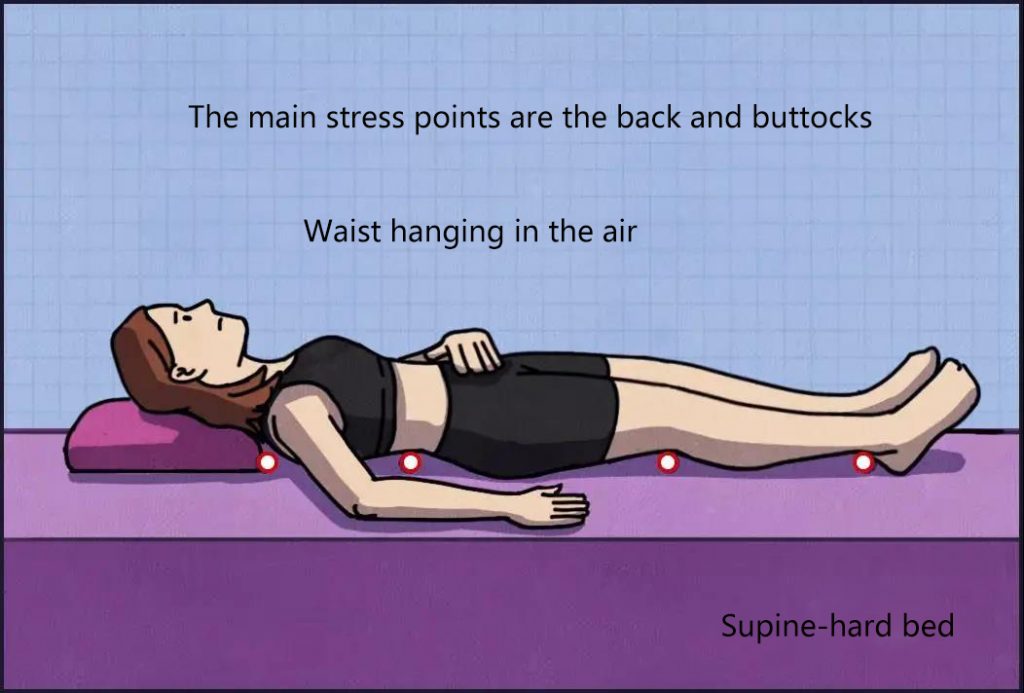
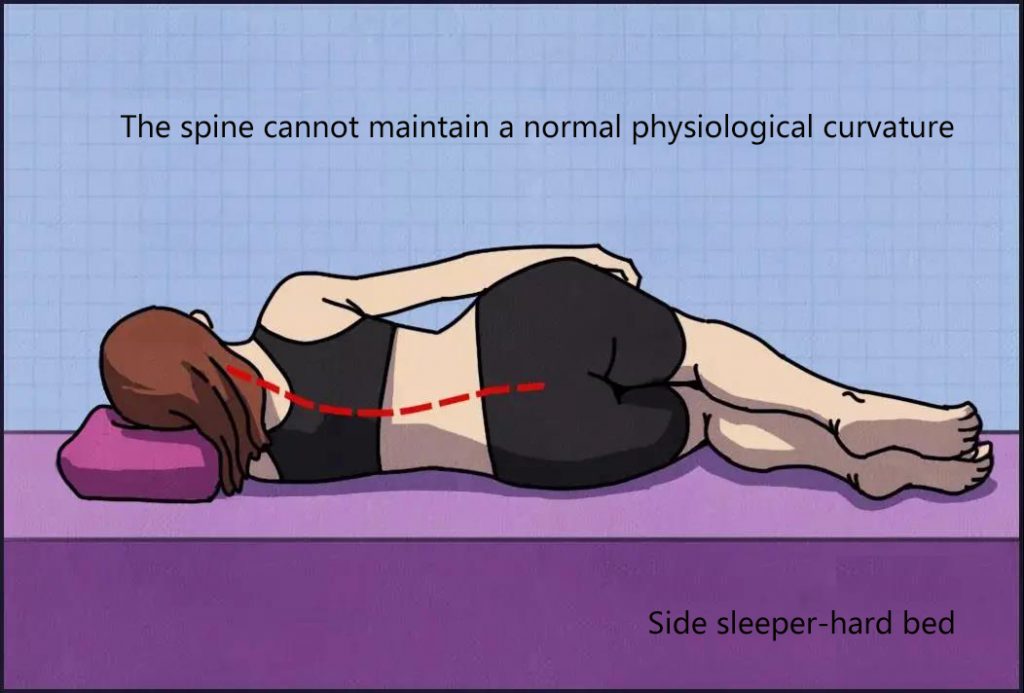
Then someone might say, I didn’t feel it when I slept in a hard bed?
his is because when you first sleep in a hard bed, your muscles will tense up, and various adjustments will help you adapt to the hard bed.
Why do you need to adapt to the hard bed?
Moreover, people’s muscles are lazy. When you fall asleep, the muscles will slack down, but the spine remains distorted.
Being in this state for a long time will immediately affect the muscles and ligaments near the spine. They will continue to be tired, and fatigue is easy to strain.
As we all know, the more things are used, the easier they break. It’s time for them to rest, but they don’t get the rest they deserve.
Moreover, the accumulation of fatigue is the basis of various chronic injuries.
Quantitative change causes qualitative change, which may lead to premature aging of spine, hyperosteogeny, lumbar disc herniation and other problems.
At this time, a friend may think:
Since the hard bed is not conducive to protecting the lumbar spine, can I choose the soft one?
No.
Not even a soft bed
Many people have had the experience of sleeping on the sofa until they have low back pain. In fact, sleeping on a soft bed is also the same.
First of all, it’s not that you went out of your body and worked hard all night.
It’s because the soft bed doesn’t have enough support – there will be obvious collapse in the area where the body’s weight is concentrated.
Your muscles and spine are twisted in an incorrect position.
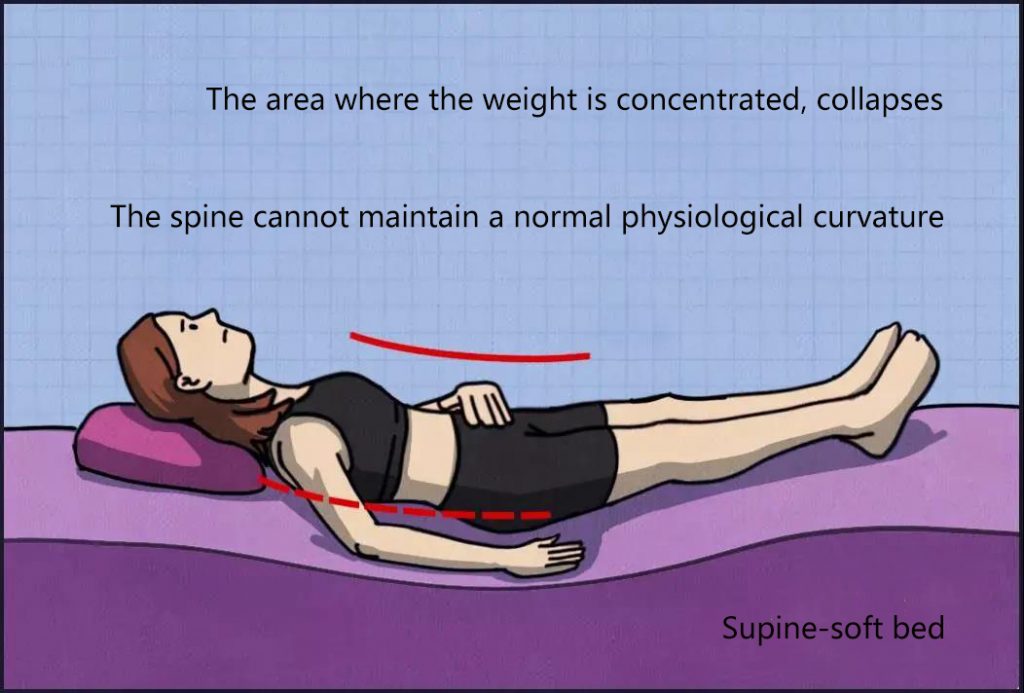
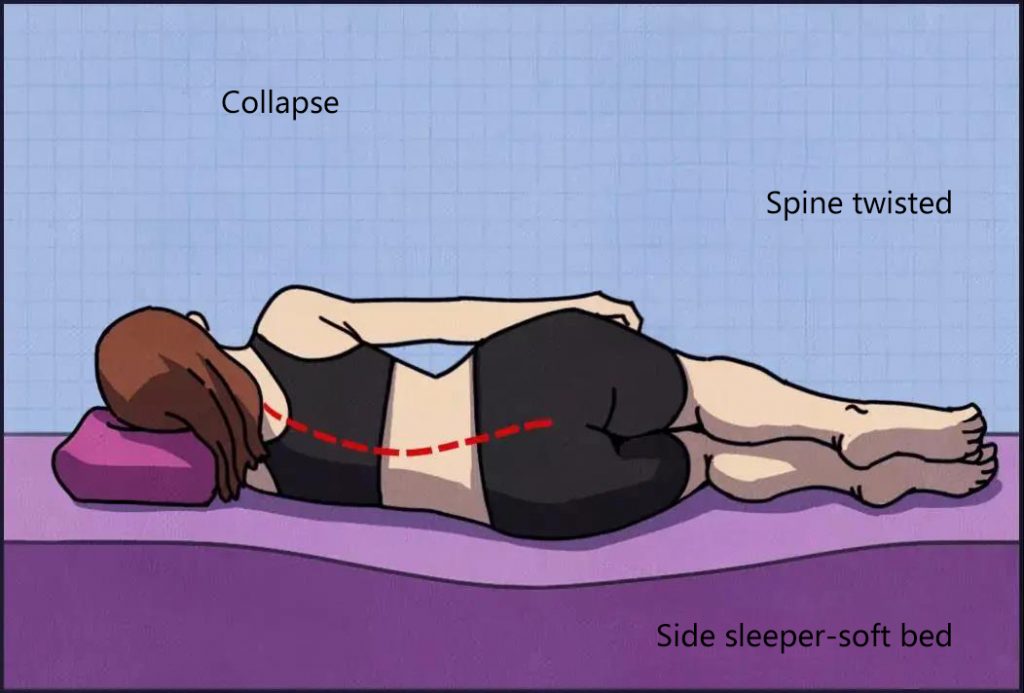
This is the same as the disadvantage of sleeping in a hard bed to the body – the lumbar muscles continue to be tired, and the physiological curvature of the spine cannot be kept natural… The more you sleep, the more tired you are, and all kinds of lumbar problems are planted.
Which hardness bed is more suitable for people with poor waist?
We suggest you——
The bed with moderate soft and hard can better protect the lumbar spine
In fact, many studies have shown that——
A bed with moderate soft and hard is better for the waist and can improve sleep.
A study published in the lancet divided 313 patients with low back pain into two groups and asked them to sleep in a hard bed and a bed with moderate soft and hard. The results showed that a mattress with moderate soft and hard had a better effect on alleviating low back pain.
In fact, this is not difficult to explain. When sleeping in a moderate soft and hard bed, the lumbar muscles can be effectively supported, and can better fit the physiological curve of the human spine to maintain a natural state.
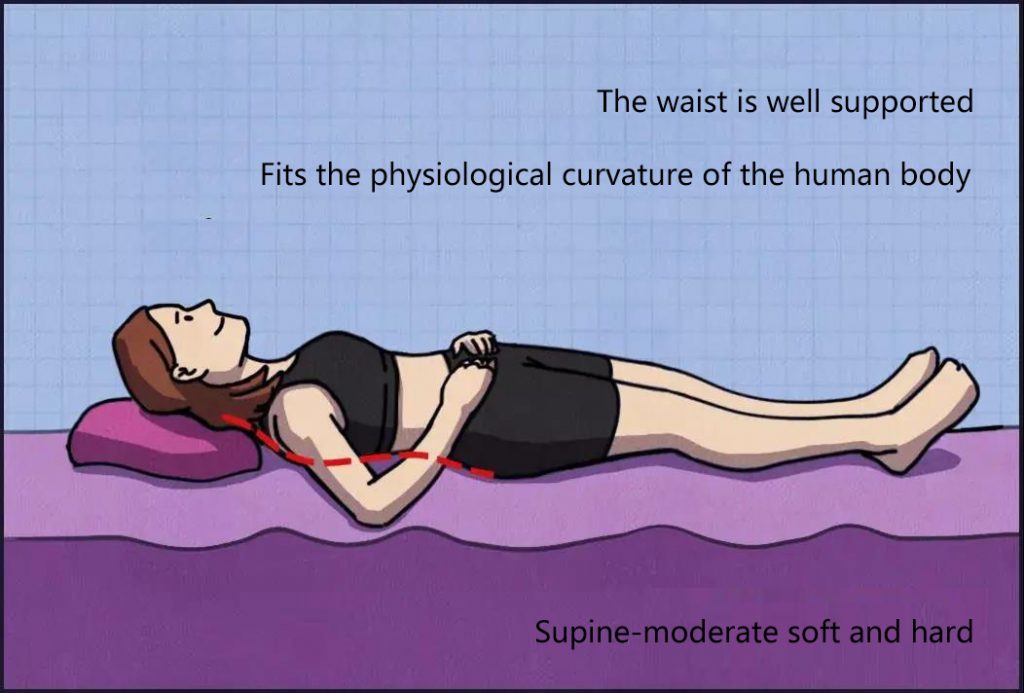
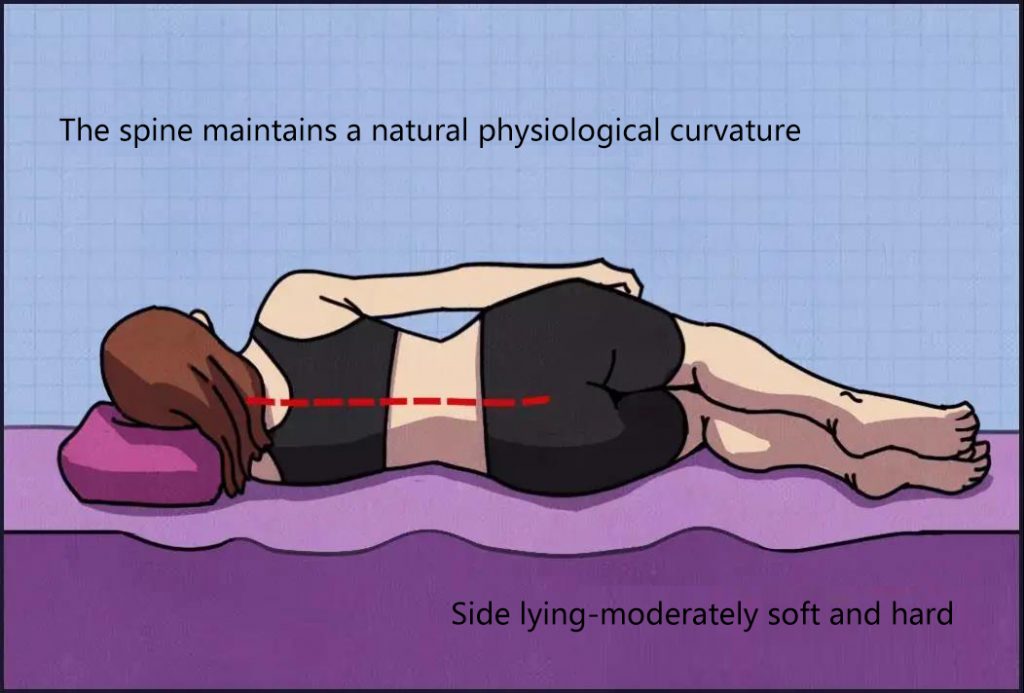
In this regard, a study published in the Chinese Journal of Rehabilitation Medicine found that a bed with moderate soft and hard can also improve sleep by comparing three kinds of soft and hard mattresses.
In the experiment, hardwood bed, moderate soft and hard spring bed and soft sponge bed were used respectively. The results showed that people who slept on a spring bed with moderate soft and hard had less body movement at night and higher scores on sleep quality.
A similar conclusion was reached in the systematic study of the United States in 2015——
Moderate soft and hard mattress can improve sleep quality by 55% and reduce back pain by 48% in patients with chronic low back pain.
In general, a bed with moderate soft and hard can be more conducive to our lumbar spine and provide better sleep comfort.
Comments